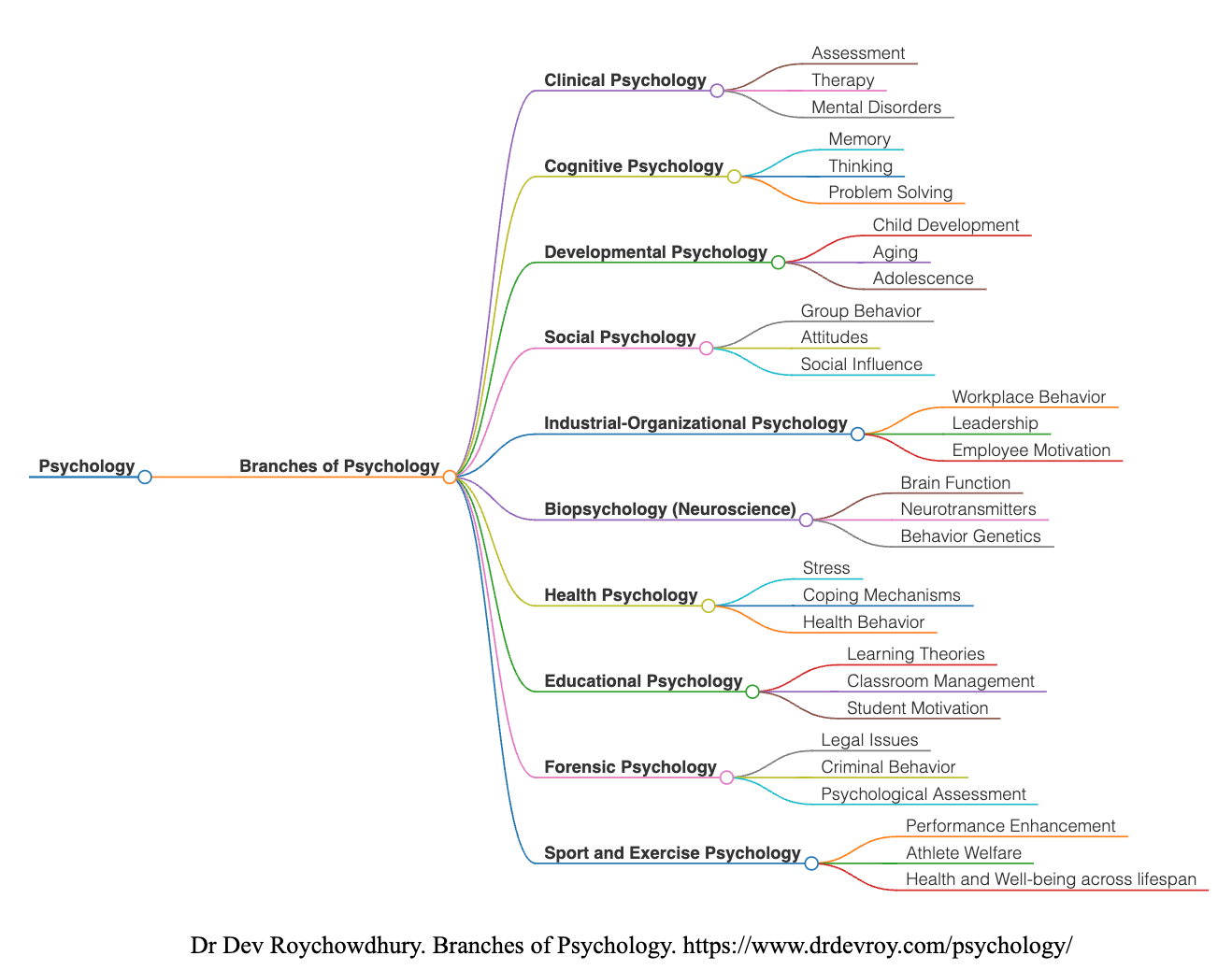As I sit down to write about psychology, I am reminded of the intricate web that connects our thoughts, emotions, and behaviours. Psychology, as a field of study, delves into the depths of human cognition, emotion, and behaviour. It is both an art and a science — a journey that takes us from the observable to the hidden recesses of our minds.
What is Psychology?
At its core, psychology seeks to understand why we think, feel, and act the way we do. It is the scientific exploration of the human mind, behaviour, and mental processes. From the mundane decisions we make daily to the profound complexities of our dreams, psychology sheds light on the mechanisms that drive our existence.
Key Areas of Psychology
Psychology isn't a monolithic entity; it branches out into fascinating subfields, each with its unique lens on the human experience.
- Cognitive psychology explores the inner workings of our minds, delving into processes like memory, attention, language, and problem-solving. Imagine trying to understand how you juggle remembering your grocery list while navigating rush hour traffic – that's cognitive psychology in action!
- Social psychology examines how we interact with others, exploring the power of social influence, group dynamics, and our perception of ourselves in relation to others. Think about why you might conform to a group's opinion, even if you disagree – social psychology can shed light on that.
- Developmental psychology traces the remarkable journey of human growth, from the early stages of infancy to the golden years of old age. This field explores how our cognitive, social, and emotional abilities develop and change throughout our lives. Ever wondered why toddlers have tantrums or teenagers seem perpetually moody? Developmental psychology can offer valuable insights.
- Clinical psychology focuses on mental health, diagnosis, and treatment of psychological disorders. Here, professionals work to alleviate symptoms of anxiety, depression, phobias, and other conditions, helping individuals lead more fulfilling lives.
- Sport and Exercise Psychology equips athletes with mental training techniques to enhance performance, manage anxiety, and build resilience. They also explore the psychological benefits of exercise for individuals of all fitness levels.
- Health Psychology explores the intricate link between our thoughts, emotions, and behaviours with our physical health. Professionals in this field investigate how psychological factors influence health behaviours, illness management, and overall well-being.
- Counselling Psychology provides therapy to individuals, couples, and families. Professionals help them navigate difficult emotions, develop coping mechanisms, and improve their mental well-being.
- Organisational Psychology focuses on optimising human behaviour within organisations. Professionals in this field might design training programs, assess employee well-being, or help develop effective leadership strategies.

The Power of Psychology in Everyday Life: Shaping Our World
Psychology's influence extends far beyond the realm of therapy and clinical settings. Its principles permeate the very fabric of our daily lives, shaping how we interact with the world around us. Here are just a few captivating examples:
- Revolutionizing Education: Imagine a classroom where learning feels effortless and engaging. This is the power of educational psychology in action! By understanding how people learn, retain information, and are motivated, educators can craft effective teaching methods. This might involve incorporating interactive activities, utilizing spaced repetition techniques to boost memory, or tailoring lessons to different learning styles – all thanks to insights from psychology.
- Designing User-Friendly Technology: Have you ever used an app or website that feels intuitive and effortless? That's likely due to the work of user experience (UX) psychology professionals. They delve into human perception and interaction patterns to design interfaces that are easy to navigate and understand. From the layout of your favourite online store to the intuitive controls on your smartphone, psychology plays a crucial role in shaping our digital experiences.
- Crafting Compelling Marketing Messages: Ever stopped to wonder why that catchy advertisement stuck in your head? Marketers tap into the power of social psychology to understand consumer behaviour and motivations. By understanding how factors like social influence and emotional appeal influence our decisions, they can craft targeted messages that resonate with specific audiences, making marketing campaigns more persuasive.
- Boosting Workplace Productivity: The modern workplace thrives on optimized human behaviour. This is where organizational psychology steps in. By understanding factors that influence employee motivation, teamwork, and decision-making, professionals can help design training programs, create positive workplace cultures, and develop effective leadership strategies. Ultimately, this leads to a more productive and well-functioning work environment.
- Designing Effective Legal Systems: Psychology even plays a role in the legal system. Professionals in this field understand how memory works, how people react under pressure, and how biases can influence decision-making. This knowledge can be applied to areas like witness testimony, jury selection, and crafting effective legal arguments.
These are just a few examples of how psychology's influence stretches far beyond the academic discussions. By understanding human behaviour, we can create a world that is more user-friendly, engaging, and ultimately, works better for everyone.
Psychology: A Profound Journey of Self-Discovery
Perhaps the most transformative aspect of psychology lies in its potential for self-discovery. It's not just about understanding others; it's about embarking on a fascinating quest to understand ourselves. As we delve into the complexities of human behaviour, we embark on a journey of introspection that can be both challenging and incredibly rewarding.
Imagine yourself peeling back the layers of an onion, each layer revealing a new facet of who you are. Psychology equips you with the tools to do just that. By exploring concepts like personality traits, unconscious biases, and emotional triggers, you gain a deeper understanding of what motivates you, what makes you tick, and why you react to situations in certain ways. This newfound self-awareness can be a powerful catalyst for positive change.
For instance, understanding your dominant personality traits can help you navigate challenging social situations. Are you an introvert who needs time to recharge after social interaction? Psychology can help you communicate this need to others and create healthy boundaries. Perhaps you discover a tendency towards procrastination – understanding the underlying reasons for this behaviour can empower you to develop effective coping mechanisms and become more productive.
The journey of self-discovery through psychology isn't just about personal growth; it fosters stronger relationships with those around you. By understanding your own communication style and emotional triggers, you can become a more empathetic and compassionate listener. You can learn to identify the communication styles of others, allowing you to tailor your approach to foster deeper connections. Imagine navigating a disagreement with your partner – psychology can equip you with the tools for effective communication, leading to a more productive and respectful resolution.
Ultimately, this journey of self-discovery empowers you to navigate life's challenges with greater resilience. Understanding your strengths and weaknesses allows you to capitalize on the former and address the latter. Facing a difficult decision? Psychology can equip you with frameworks for analysing your options and making choices aligned with your values. Feeling overwhelmed? Understanding the source of your stress can help you develop coping mechanisms and build emotional resilience.
So, the next time you find yourself pondering the intricacies of human behaviour, remember: psychology isn't just a field of study; it's a powerful tool for self-discovery. It offers a roadmap to navigate the complexities of yourself and the world around you, empowering you to live a more fulfilling and meaningful life.





